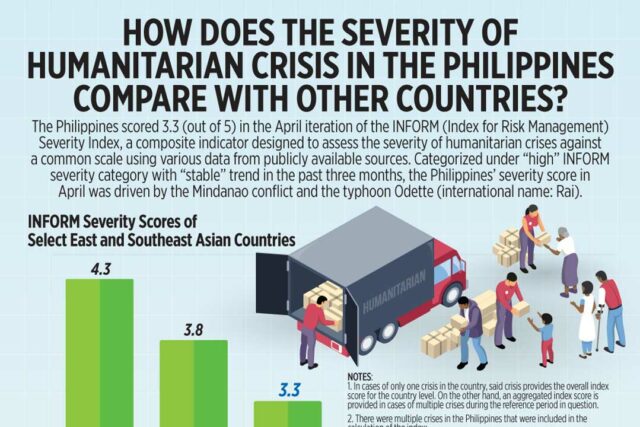As we awaited the results of the recently concluded 2022 national elections, the Supreme Court (SC) released its decision signifying a win for Banks and Other Financial Institutions (OFIs).
On May 10, the SC released its decision promulgated on Dec. 1, 2021 on the petition for certiorari of the Department of Finance (DoF) and Bureau of Internal Revenue (BIR) seeking the annulment of an order of the Regional Trial Court (RTC) Branch 57 in Makati City that declared Revenue Regulations No. 4-2011 null and void.
The SC voided the 2011 revenue regulation issued by the BIR that effectively curbed income tax deductions of Banks and OFIs in the computation of their taxable income.
TAXABLE INCOME AND INCOME TAX RATE
Banks derive their earnings from operations of their Regular Banking Units (RBUs) or from Foreign Currency Deposit Units (FCDUs), Expanded Foreign Currency Deposit Units (E/FCDU), or Offshore Banking Units (OBUs).
Bank taxable income is subject to various income tax rates. Taxable income derived from operations of RBUs is subject to regular corporate income tax (RCIT) of 25%/20%. However, taxable income of banks from E/FCDUs with respect to foreign currency transactions with non-residents, OBUs in the Philippines, and local commercial banks, including branches of foreign banks authorized to transact business with E/FCDUs are exempt from income taxes. Interest income from foreign currency loans granted by such depository banks under the expanded system to residents other than offshore units in the Philippines or other depository banks under the expanded system are subject to a final tax of 10%.
However, under RA 11534 or CREATE, taxation of income of OBUs was amended and made subject to RCIT of 25%.
ISSUANCE OF REVENUE REGULATIONS NO. 4-2011
In 2011, the Bureau of Internal Revenue (BIR) issued Revenue Regulations (RR) No. 4-2011 prescribing the rules for proper allocation of costs and expenses of banks and financial institutions’ earnings for income tax reporting considering that taxable income of banks may be subject to different income tax rates.
The RR provides that a bank may deduct only those costs and expenses attributable to the operations of its RBU to arrive at the taxable income of the RBU subject to regular income tax. Any cost or expense related to or incurred for the operations of its FCDU/EFCDU or OBU are not allowed as deductions from the RBU’s taxable income.
In computing the amount allowable as deduction from RBU operations, costs and expenses should be allocated between RBU and E/FCDU or OBU using the prescribed methods:
1. By specific identification: used for expenses that can be specifically identified with a particular booking unit or taxation regime
2. By allocation: used for expenses that cannot be specifically identified with a particular unit or taxation regime. Allocation must be based on the percentage share of gross income earned by the booking unit or taxation regime to the total gross income earned.
Based on the revenue regulations, banks were not given the choice of identifying their own allocation method for expenses which cannot be specifically identified with a particular unit. The BIR has ruled that the allocation can only be based on the percentage of share of gross income.
ISSUES IN ALLOCATING COSTS AND EXPENSES
The RR aimed to set rules that banks may only deduct costs and expenses attributable to the operations of its RBUs to arrive at the RBU taxable income subject to regular income tax.
Since costs and expenses are usually allocated to various booking units and taxation regimes, tax benefits through deductions enjoyed by the banks from these costs and expenses are significantly decreased.
Take for example expenses allocated to FCDU activities which are subject to 10% final tax. No benefit can be derived as no deduction is allowed to be applied against such activities. No tax benefit will be received by the taxpayers for expenses which will be allocated to income subject to final tax since deductions are not allowed against income subject to final tax. On the other hand, for expenses allocated to income exempt from income taxes, no benefit can be acquired, as income is already exempt from income taxes.
DECISION ON TAX DEDUCTIONS FOR BANKS AND OFIS
Due to the issuance of the RR, several banks filed a petition for Declaratory Relief before the RTC. The RTC ruled in favor of the banks and the case was elevated to the SC. In taking cognizance of the case, the SC emphasized that a petition for certiorari or prohibition, not declaratory relief, is the proper remedy to assail the validity or constitutionality of executive issuances. Further, the Court of Tax Appeals, not the RTC, has the jurisdiction to rule on the constitutionality and validity of revenue issuances of the Commissioner of Internal Revenue (CIR).
However, the SC, noting that the validity of RR 4-2011 has far reaching ramifications among banks and OFIs, decided to treat the petition as a petition for certiorari.
The SC ruled that RR 4-2011 is void as the CIR went beyond, if not gravely abused her authority in issuing such a regulation. Further, the issuance of the RR was found to contain substantive and procedural irregularities.
It stressed that, in its previous decisions, it consistently ruled that delegation of legislative power to administrative agencies is strictly construed against the agencies. Administrative agencies cannot amend or modify any act of Congress and should only issue regulations that are in harmony with the provisions of the law.
In issuing RR 4-2011, the SEC noted that the BIR expanded or modified the law when it curtailed the income tax deductions of respondent banks and when it sanctioned the method of accounting the banks should use, without any basis. This amounts to tax legislation, a power held solely by Congress.
The law does not empower the BIR and the Secretary of Finance to issue a regulation such as RR No. 4-2011. The Tax Code allows taxpayers to self-determine the accounting method most applicable to them. The CIR may only prescribe an accounting method if (a) taxpayer did not use an accounting method, or (b) the accounting method used does not clearly reflect the income of the taxpayer. Such circumstances are not present in this case. The SC ruled that the CIR may only challenge the propriety of the accounting method via an audit investigation or assessment. The CIR can then issue a finding if the accounting method has distorted the taxpayer’s taxable income. Without such finding, the CIR cannot simply substitute its own judgement and impose an accounting method to be used.
Even Section 50 of the Tax Code, which calls for deductions to be allocated between or among organizations, is not applicable since it applies only to corporations with two or more separate and distinct organizations, trades, or business.
SC also noted that RR 4-2011 imposed an additional requirement for deductibility of expenses which is not provided under the Tax Code. It was also issued without prior notice and hearing which makes it ineffectual.
In fine, the SC decided that the Commissioner of Internal Revenue, in the case of RR No. 4-2011, went beyond its authority.
While this recent decision of the SC for banks signifies a major win in this prolonged battle, the war is far from over. As long as uncertainties remain, driven by the imperfect interactions between tax authorities and taxpayers, and given the complexities of the taxation landscape, the possibility for a reversal or modification of the SC division’s decision is a possibility. But until then, victory is ours.
Let’s Talk Tax is a weekly newspaper column of P&A Grant Thornton that aims to keep the public informed of various developments in taxation. This article is not intended to be a substitute for competent professional advice.
Vinces Paul C. Leorna is a senior in charge of Tax Advisory & Compliance division of P&A Grant Thornton, the Philippine member firm of Grant Thornton International Ltd.
pagrantthornton@ph.gt.com
















